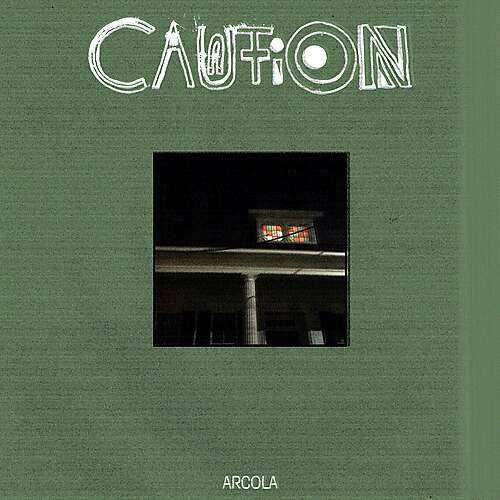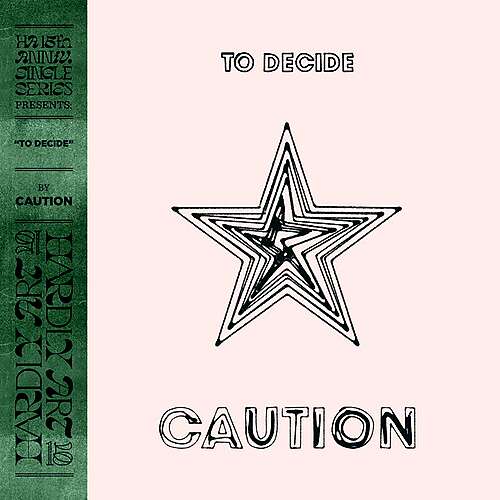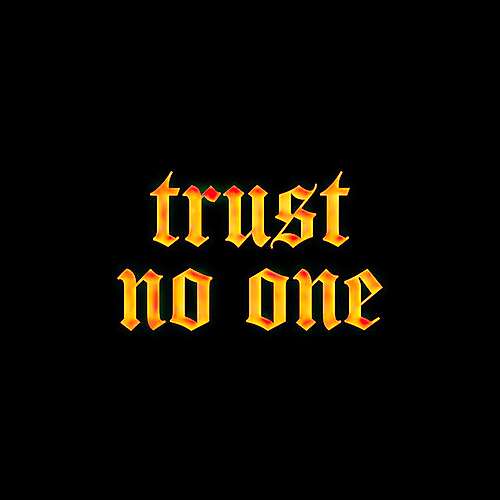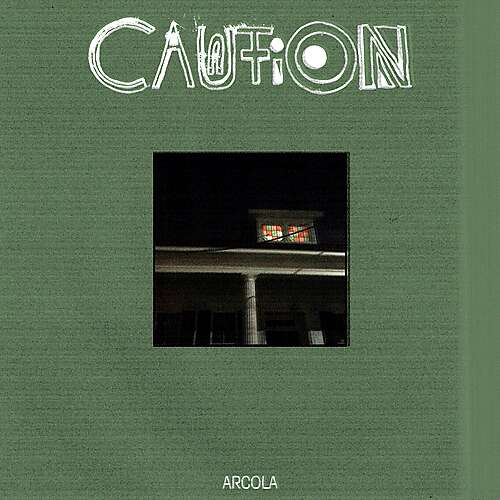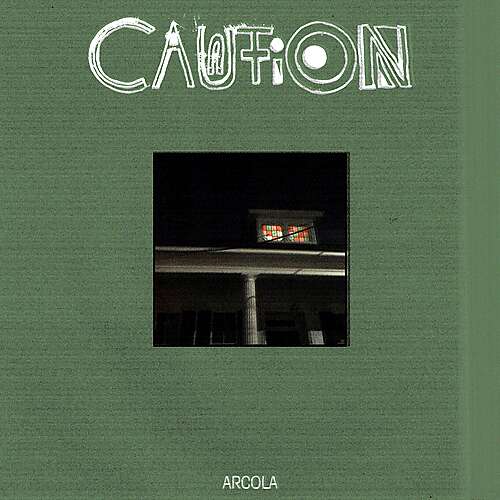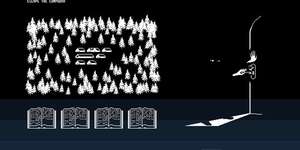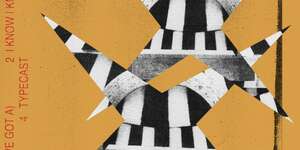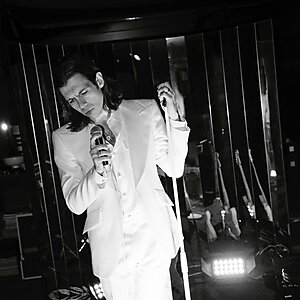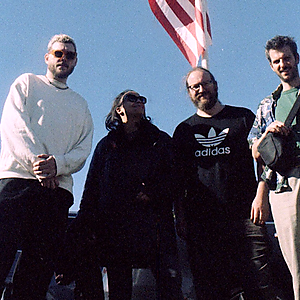Caution
Caution
country: USA
genre: Rock
styles: Shoegaze, Post-Punk, Indie Rock
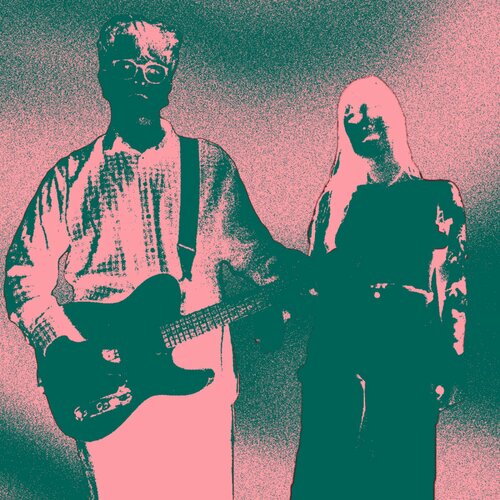
Reviews and Comments
Arcola is a small city in the middle of Illinois; it’s known as the birthplace of Raggedy Ann, the site of the world’s only Hippie Memorial, and home to the Lawn Rangers, a cowboy-hat wearing team of synchronized mowers. But to Caution, the two-piece band originally formed in Washington, D.C., Arcola holds a different mythological significance. With its songwriters Nora Button and Cash Langdon now relocated to Minneapolis, MN and Birmingham, AL respectively, Arcola is halfway along the thousand-mile route that separates the band. Arcola, the title of Caution’s debut album, alludes to the isolated, dissociative feelings that accompany distance from people you love. “Me and Nora can’t escape this ‘we’re apart’ thing,” explains Langdon. “It felt perfect to make the title something that is quite literally the distance between us.”
Though both Button and Langdon have played in electropop, punk, jazz, and folk outfits individually, they first collaborated as members of D.C. power pop band Saturday Night. Deeply in awe of each other’s talents, Button and Langdon dreamed of a new project which could more freely explore their varied tastes. Button woke up each day to write for it, spending mornings in a “cold, unwelcoming basement apartment” to compose. “I remember thinking, ‘I don’t know how to write a Saturday Night song. How do I write songs like Cash?’” Button reflects. “It inspired me to write more, to feel like I could do it. Caution feels the most true to the kind of project I’d really want people to hear.” Making mutual respect and equality paramount was crucial for the songwriters; in 2019, they began recording together as Caution on a four track at Langdon’s place in Baltimore.
In March 2020, Button relocated to Minneapolis to focus on her work as a Montessori educator. Shortly after, Langdon spent four months on a Western Maryland farm before eventually landing back in Birmingham. “I had a lot of time on my hands, and that reignited us doing Caution,” he explains. In April 2020, the band self-released its first EP, What You Sell, a collection of pre-pandemic recordings with a focus on shoegaze-y Jaguar swirls and iridescent vocals. Invigorated by their collaboration despite its remoteness, the duo traded voice memos back and forth, completing a self-titled EP released by Chicago label Born Yesterday in early 2021. Caution was proof of concept that the duo’s distinctive chemistry could be recreated from far away. Button and Langdon felt additionally buoyed by their label’s supportiveness, and by admiration for its roster, including contemporaries Dummy, Ulna and Moontype—a crucial network in a time when touring and thus community was hampered. Energized by these relationships, Caution set to work on a first full-length.
Tracked separately at its members’ homes—using recording rigs and virtual instruments Langdon describes as “bare bones by necessity”—Arcola is an urgent, eight-song exploration of Caution’s dedication to honest sentiment and artfully warped sounds. Like on their previous releases, booming drum machines and textural reverbs feature prominently in the blend; Langdon reverently cites British ‘80s alt- and art-rock acts like Psychic TV and the Jesus and Mary Chain as influences, both on the sonic direction as well as the accompanying visual elements, which he also creates. But the avant-blues forays of Jon Spencer and Primal Scream, bit-crushed sounds of experimental music, and the melodic power of radio pop also inform Arcola. As lyricists and singers, Button and Langdon take cues from the imperative directness of The Lemonheads and Elliott Smith’s plaintive delivery.
Most often, one member of Caution will present their demo to the other in a nearly-completed state; like retelling a dream, their interpretations of one another’s songs skew the original meaning. “Fuck It Up,” built around a sinister, slacker-weight arpeggio and a casual kick-snare groove, sees Button’s floaty-cool vocals and Langdon’s harmonies gliding over dissonant guitar and crunchy keyboard. Says Button: “I always come back to feeling uncomfortable when things are going well, a self-loathing where you can’t be content.” But after the song’s initial writing, its thesis of “I will fuck it up somehow” took on a complication: “Cash and I were talking about looking at destructive feelings with ambivalence,” she says. “There’s a weirdly positive nature to commenting on, but not feeling emotionally attached to, things falling apart.” On “Hand That Looks Like Mine,” one of the oldest songs in the set, high-speed drum beats, ethereal claps and jangly guitars ground the vocal trade-offs, twisting with the song’s quick-stepping build. “It’s about a self-imposed, ‘you don’t wanna associate with me or be near me’ feeling, which maybe isn’t real but feels real,” recalls Langdon. “I was thinking about being performative in daily life.” Button took the song to be about the strangeness of artistic performance, imbuing the song with double meaning.
Across the album, disorienting vocal delays coalesce into dark layers of synths; blown-out, anthemic guitar chords break apart into wide-open acoustic strums; gently buzzing bass stabs menace under soaring guitar slides and thick, trip-hoppy cymbals. Above it all are the pair’s interlocked vocals, sometimes in unsentimental unison or disparate octaves, sometimes launching off into ascendant harmonies. “A big part of Caution is singing together,” offers Langdon. While the pair have not been able to do so in person in over two years, their music has brought them closer than ever in a time when intimacy is precious. “The most overarching theme of this album is the feeling of being disconnected,” Langdon offers as a summary. “Caution has mostly existed in a post-pandemic world and we live in separate places—in that way, I mean disconnected very literally. But aside from that, most of the songs have a blurry yearning for connectivity, with ourselves or with the outside world.” Though the pair writes about cynicism, hangups and hopelessness, through the overriding joy of writing together, Caution’s members generate connectivity in abundance—both for each other, and for those who hear the results. Arcola is proof that a thousand mile separation is no hurdle for two artists whose minds work best when they meet right in the middle.
latest releases

